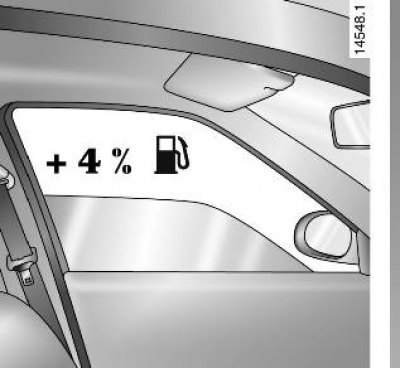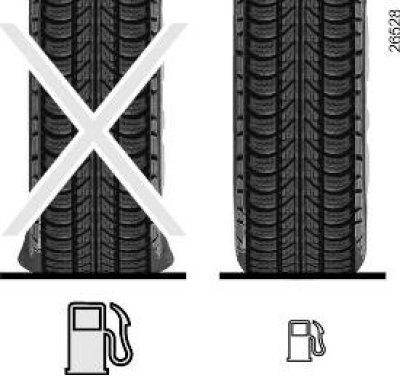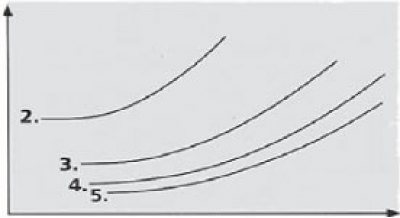
On vehicles equipped with an air conditioning system, when using it, an increase in fuel consumption is observed, especially when driving in the urban cycle. In vehicles equipped with an air conditioning system without automatic mode, turn off the air conditioner when it is not needed.
Some tips to help you reduce fuel consumption and protect the environment:
- - we recommend that you move with open deflectors and raised windows.
- - If your car has been parked in very hot weather or in direct sunlight, we recommend that you ventilate the interior for a few minutes before starting the engine.
- - Do not overfill the tank when refueling to avoid spilling fuel.
- - Do not drive with an empty roof rack.
- - Bulky loads are best transported in a trailer.
- - When towing a caravan, use an aerodynamic deflector; don't forget to adjust its position.
- - Avoid using the vehicle for frequent and short trips combined with long stops: this prevents the engine from reaching normal operating temperature.
Tires

The reason for the increased fuel consumption can be:
- - insufficient tire pressure,
- - installation of tires not recommended by the manufacturer.
Fuel consumption is affected by the following factors:
Transfer rate selection

The figure above shows the effect of speed and gear selection on fuel consumption. Using a low gear to improve acceleration results in clearly higher fuel consumption.
Driving Distance/Engine Temperature
Frequent cold starts and short trips will result in a significant increase in fuel consumption.
Keep the air filter clean.
An air filter clogged with dust will increase the resistance to air flow into the engine, resulting in reduced engine power and increased fuel consumption.
Road and traffic conditions
Traffic jams, uphill traffic, a lot of turns and bad roads all affect fuel consumption.
Correct driving style
Anticipating danger and maintaining a safe distance from previous vehicles will reduce not only fuel consumption but also brake wear.
Car loading unnecessarily
Increasing the vehicle load causes more fuel to be consumed. Remove unnecessary luggage or cargo from the vehicle.
Technical condition of the car
Too low tire pressure or improper maintenance of the engine and vehicle also requires additional fuel consumption.
Necessary conditions for economical use of fuel and environmental protection
Drive in fuel economy mode and use electrical accessories only when necessary.
Do not start driving without preheating.
Gently press the accelerator.
Shift to the next gear as soon as possible in order to achieve lower engine speeds.
Consider traffic conditions.
Switch off the A/C and heated rear window functions immediately if they are no longer needed.
Check/adjust tire pressure periodically.
Carry out periodic inspections of the vehicle.
